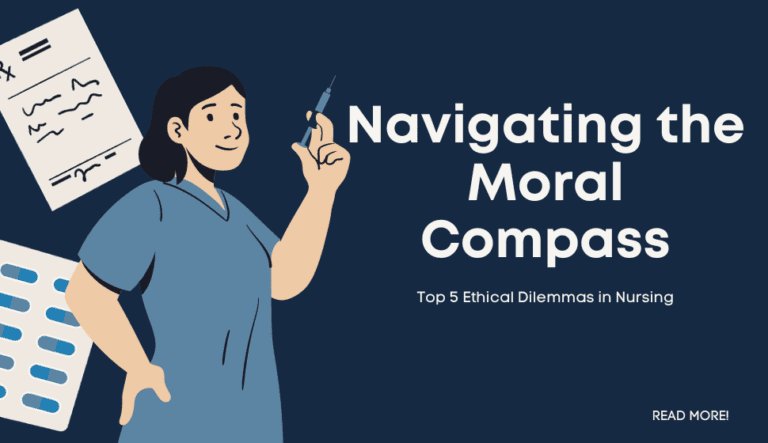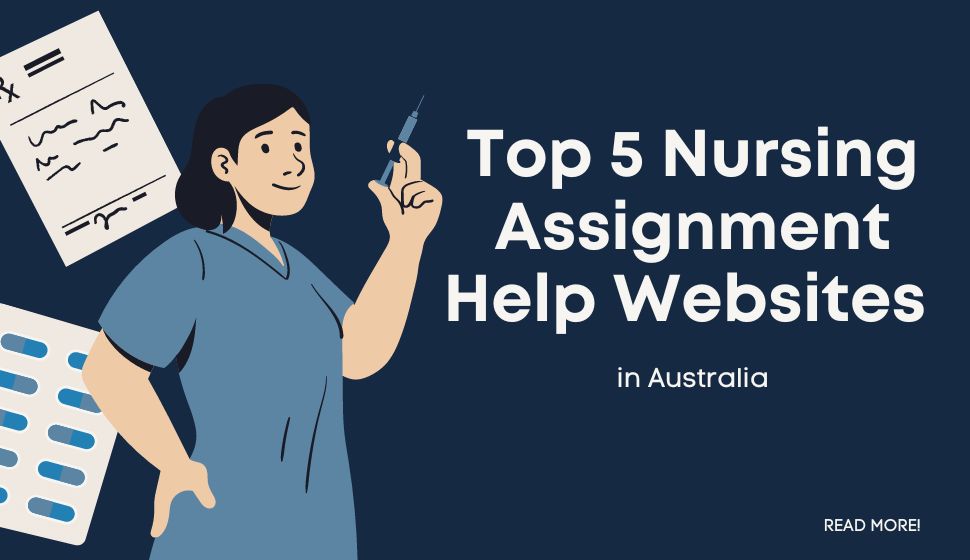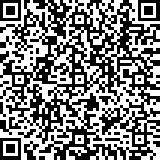Ethics problems are a constant difficulty in the noble profession of nursing. The well-being of their patients and ethical values must frequently be balanced in situations that force nurses to make difficult judgments. Because they include crucial problems that may have an effect on patient care, healthcare practitioners, and the overall healthcare system, these ethical quandaries in nursing are both complicated and thought-provoking. We will examine the top five nursing ethical conundrums in this thorough guide, illuminating the intricacies that nurses deal with on a daily basis.
The Landscape of Ethical Dilemmas in Nursing
Ethical Dilemmas
Let’s define what ethical challenges in nursing are before we get into the specific ethical concerns.
A circumstance when a nurse is forced to make a decision between two or more moral principles or ideals leads to an ethical dilemma. These conundrums frequently occur when there is no obvious “right” or “wrong” option and the nurse must make a choice that has ethical repercussions.
The Ethical Principles in Nursing

- Autonomy: The idea of autonomy recognizes the patient’s right to make their own healthcare decisions. When a patient’s capacity to make judgments is damaged, this idea is regularly put to the test.
- Beneficence: To achieve their ethical obligations, nurses must act in the best interests of their patients and strive to ensure their well-being.
- Non-Maleficence: The duty to “do no harm” is emphasized by the non-maleficence principle. The possible advantages and disadvantages of an intervention must be weighed by nurses.
- Justice: To guarantee that all patients have access to and get the same quality of treatment, fair healthcare resource allocation is required for ethical nursing practice.
- Veracity: In their interactions with patients and the rest of the medical staff, nurses are expected to be open and honest.
Legal and Ethical Framework in Nursing
Understanding the legal and ethical framework in nursing is crucial for addressing ethical dilemmas. Let’s explore the laws and regulations that guide nursing practice in Australia.
Top 5 Ethical Dilemmas in Nursing
Now, let’s dive into the five most common ethical dilemmas faced by nurses in their daily practice.
1. Informed Consent vs. Patient Capacity
Balancing Autonomy and Patient Well-being
In the healthcare business, informed consent is a critical ethical principle. Nurses, on the other hand, typically deal with situations in which patients are unable to make educated judgments. How can nurses protect a patient’s liberty while still considering their needs?
2. End-of-Life Care Dilemmas
Navigating Euthanasia and Withholding Treatment
Decisions concerning end-of-life care are among the most morally challenging nursing situations. When dealing with issues like as euthanasia or postponing treatment, nurses must consider the patient’s wishes, quality of life, and family ties.
3. Resource Allocation in Healthcare
The Struggle for Justice
When healthcare resources are few, resource allocation raises an ethical quandary. In times of crisis, like as the COVID-19 pandemic, nurses may be forced to make difficult decisions about treatment distribution.
4. Confidentiality vs. Duty to Warn
Balancing Privacy and Safety
Although nurses are required to protect patient privacy, what happens when they learn that a patient intends to hurt herself or others? The limits of secrecy are put to the test by this moral conundrum.
5. Nurse-Patient Relationship Boundaries
Navigating Professionalism and Compassion
Nurses form close bonds with their patients, which can blur the lines of professional boundaries. How should nurses balance compassion and maintaining a professional relationship?
Ethical Decision-Making in Nursing
Navigating ethical dilemmas requires a systematic approach to decision-making.

- Identify the Issue: Define the ethical problem at hand in detail, taking into account all relevant elements.
- Gather Information: Gather all relevant facts and information about the problem.
- Determine Stakeholders: Determine who the choice will affect, including the patient, family, and healthcare team.
- Consider Ethical Principles: Analyse the scenario using the ethical principles of autonomy, beneficence, nonmaleficence, fairness, and honesty as a guide.
- Evaluate Options: Generate possible solutions to the dilemma, considering the pros and cons of each.
- Make a Decision: Choose the most appropriate course of action, taking into account the ethical principles.
- Implement and Evaluate: Act on the decision and assess its outcomes. Adjust the plan if necessary.
Conclusion
In the complex and demanding world of nursing, ethical dilemmas are ever-present, challenging the moral compass of healthcare providers. By understanding the ethical principles, legal framework, and common ethical dilemmas, nurses can make more informed decisions that prioritize the well-being of their patients.
Nursing students must be well-versed in the complexities of law and ethics in nursing assignments as they progress through their education. These exercises assist students in developing the critical thinking abilities required to deal with real-world ethical quandaries in their future employment.
Seek assistance and support if you want to thrive in your nursing law and ethics assignments. Contact Assignment Unlocked for Complete Nursing Ethics Assignment Help in Australia.
Remember, ethical dilemmas in nursing are complex, but with the right knowledge and ethical framework, nurses can make decisions that uphold the values and principles of their noble profession.






